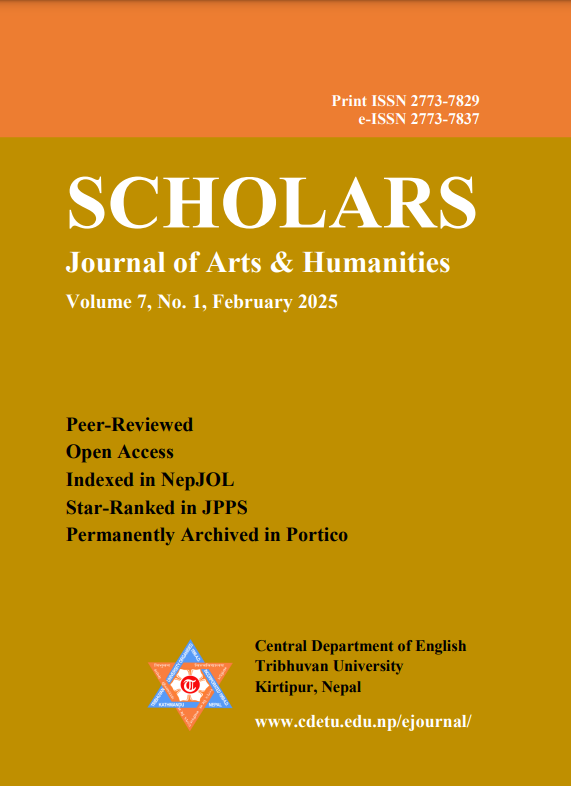The Rhetoric of Sublime in LP Devkota’s Works: A Critique of National Ethos
DOI:
https://doi.org/10.3126/sjah.v7i1.75671Keywords:
Sublime rhetoric, noble thoughts, national sensibilities, glirification, national ethosAbstract
In his prose writings, Laxmi Prasad Devkota, popularly known as LP Devkota, makes subjective accounts of his embodied national sensibilities in the form of national ethos. He glorifies his land, people, language, and culture. Amidst the ongoing debates on the multiple characters of Nepali nationalism, this paper however aims to explore the rhetorical dynamics of evoking the national ethos in the eight selected essays from the anthology Laxmi Nibandha Sangraha (Laxmi Essays Collection) to explore how he intends to move his audience evoking in them a sense of love for the motherland, thereby evoking the national ethos. Instead of critiquing the historicity of Nepali nationalism, this paper explores how literary works are instrumental in evoking a sense of national consciousness in the readers. On the theoretical foundation of Longinus’ rhetoric of sublime, the paper aims to investigate how activating the sublime, particularly the power to conceive great thoughts and strong and inspired emotions, Devkota renders Nepal the great, evoking a tremendous sense of national ethos. The paper concludes that his works are functional in evoking a sense of national ethos among the people in general.
Downloads
Downloads
Published
How to Cite
Issue
Section
License

This work is licensed under a Creative Commons Attribution 4.0 International License.
© Central Department of English, Tribhuvan University and Authors




